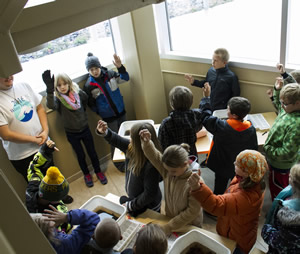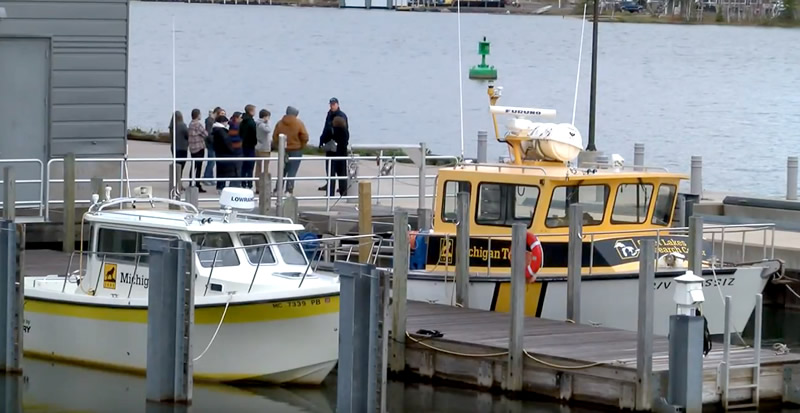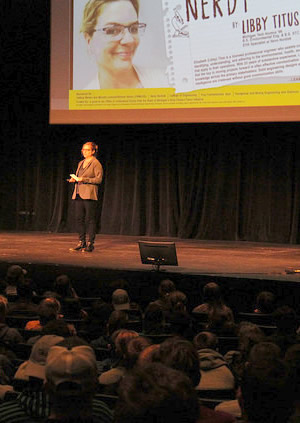 The Water Festival provides an opportunity for students to learn about and celebrate our most precious natural resource – the Great Lakes! A wide variety of topics from science and engineering to creative writing will be presented. Students attend four 35-minute activities. Some of the topics to be presented include Remotely-Operated- Vehicles, Leave No Trace Outdoors, cleaning wastewater, U.S. Coast Guard careers, Lake Sturgeon ecology, atmospheric research in a cloud chamber, and more.
The Water Festival provides an opportunity for students to learn about and celebrate our most precious natural resource – the Great Lakes! A wide variety of topics from science and engineering to creative writing will be presented. Students attend four 35-minute activities. Some of the topics to be presented include Remotely-Operated- Vehicles, Leave No Trace Outdoors, cleaning wastewater, U.S. Coast Guard careers, Lake Sturgeon ecology, atmospheric research in a cloud chamber, and more.
2017 Water Festival Presenters and Descriptions
Lake Superior Water Festival Haiku
Haiku: 5 syllables, 7 syllables, 5 syllables
| The beautiful five Great Lakes Sparkling below the sky. Nothing else compares. |
Lake Superior A gentle breeze and waves Brings back memories. |
| Over on the shore I see the waves crashing in I feel the cold breeze. |
Lake Superior Causing sailors to fall below Greatest of all lakes. |
| Rushing and foaming Dangerously storming now Lake Superior |
The cold moving water Crashing on the rocky shore Icy gray water. |
Water study: Students spend day learning at Lake Superior Water Festival
HOUGHTON — High school students from five Upper Peninsula counties learned more about the Great Lakes and the research being done on them at the sixth annual Lake Superior Water Festival Wednesday.
The goal is to get students thinking about Lake Superior in an interdisciplinary way, said Joan Chadde, director of the Center for Science and Environmental Outreach at Michigan Technological University.
Held at Tech’s Great Lakes Research Center, the day included 15 sessions led by Tech researchers, students and staff as well as members of organizations such as the Keweenaw Land Trust and U.S. Coast Guard.
Read more at the Mining Gazette, by Garrett Neese.
Lake Superior Water Festival at Great Lakes Research Center
HOUGHTON, Mich. (WLUC) – High school students from across the Western UP got a new perspective on Lake Superior today.
The Great Lakes Research Center hosted their 6th annual Water Festival today. Nearly 500 high school students learned about a variety of challenges and careers surrounding Lake Superior.
“The goal is for the students to get exposure to science and engineering challenges here in Lake Superior and its watershed, as well as to gain some background in history, communication skills and management,” said Joan Chadde, director of the Center for Science and Environmental Outreach.
Read more and watch the video at TV6 FOX UP, by Mariah Powell.

